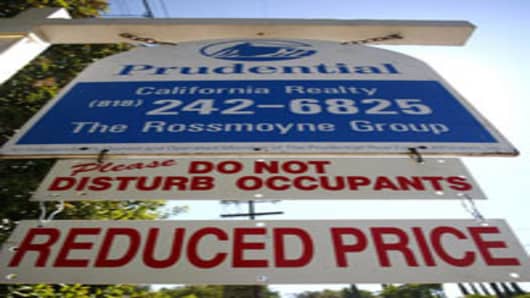Existing home sales were basically flat in April, down close to one percent month-to-month and down nearly 13 percent year-over-ear, but you have to remember last year we were heavily under the influence of the home buyer tax credit.
Now we are heavily under the influence of the mortgage market, or lack thereof.
It's all in the numbers.
Let's start with all-cash.
Thirty-one percent of buyers in April used all-cash, and that's down from 35 percent the previous month. It's likely because the number of investors buying in April also fell. Investors have been the only real fuel in this market, buying distressed properties at distressed prices.



